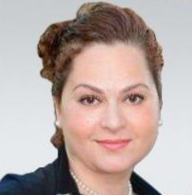10 Sprachen | Spezifische Sprachkurse abgestimmt auf Ihren Bedarf
Spezifisches Sprachtraining für Ihre Fach- und Führungskräfte
Bauen Sie innerhalb von 12 Wochen Sprachbarrieren ab und eine flüssige Fremdsprachenkompetenz auf.

Ihre Mitarbeiter lernen:
- Fachvokabular für zielführende Gespräche und erfolgreiche Verhandlungen
- flüssiges Reden für einen angenehmen Austausch im Kundenkontakt
- verständliche Artikulation und seriöse Ausdrucksweise
- Techniken, mit denen sie ihre Fremdsprachenkenntnisse nachhaltig verbessern
Der Nummer 1 Ansprechpartner für individuelles Sprachtraining.
Warum ein Sprachkurs bei WORTLAND?
1
Praxisbezogen
2
Effizient
3
Gezielt
Unser Sprachtraining stellt kein Standardprogramm dar, sondern trainiert genau die Bereiche, in denen Verbesserung notwendig ist.
Oder senden Sie uns eine E-Mail
Sprachbarrieren im Business oder Kundenkontakt?
Formal gesehen bringen viele Mitarbeiter Sprachkompetenzen mit. Und doch kommt es zu Barrieren, kleinen Missverständnissen oder die Kommunikation läuft einfach nicht flüssig genug.
Die Ursache? Der Sprachunterricht aus der Schule liegt lange zurück. Das passende Vokabular zur Branche oder zum Arbeitsbereich kam im Schulunterricht nicht vor. Die typischen Situationen im Kundenkontakt oder in internen Besprechungen wurden nicht systematisch trainiert. Kein Wunder, dass sich selbst Mitarbeiter mit umfassenden Fremdsprachenkenntnissen dann schwertun können.
Ein spezifisches Sprachtraining baut diese Barrieren ab. Außerdem legt es verstärkten Wert auf die klare Vermittlung kommunikativer Strategien. Für die geschäftliche Kommunikation ist dies entscheidend. Das Sprachtraining stärkt Kompetenzen so, dass auch die Zusammenarbeit in multikulturellen Teams besser, effektiver und angenehmer funktioniert.

Regionale Kompetenz.
Unsere erfahrenen Sprachtrainer stehen Ihnen vor allem im Raum München und Augsburg zur Verfügung. Online-Formate erhalten Sie bei WORTLAND selbstverständlich auch – für Individual- und firmeninterne Gruppenunterrichte. Kommen Sie gerne auf uns zu, damit wir klären können, ob ein Inhouse-Sprachkurs auch an Ihrem Standort durchführbar ist!
Ein Training, das Fremdsprachenkenntnisse und Rhetorik verbindet.
Das Sprachtrainingsprogramm von WORTLAND bietet Ihnen eine gezielte Business-Unterstützung für 10 verschiedene Fremdsprachen.
Ihr Vorteil: Der firmeninterne Sprachkurs orientiert sich erstens an der Branche und den konkreten Arbeitsbereichen Ihrer Mitarbeiter.
Zweitens verbindet das Sprachtraining den Aufbau von Vokabelkenntnissen und Grammatik mit rhetorischen Kenntnissen.
Beides zusammen gewährleistet, dass Ihre Mitarbeiter flüssig und zielsicher kommunizieren lernen.
Profitieren Sie von diesen Vorteilen:
- NSpezifisches Vokabular für Ihre Branche und wiederkehrende Gesprächssituationen
- NPraktische Übungen typischer beruflicher Situationen
- NAufbau von Sprachkompetenz in einem systematischen Programm
- NMaßgeschneidertes Curriculum nach Bedarf
Effiziente und praxisorientierte Sprachkurse für Unternehmen.

Innerhalb weniger Wochen lösen wir sprachliche Barrieren im beruflichen Alltag erfolgreich auf. Die starke Praxisorientierung der Sprachkurse für Unternehmen garantiert, dass Mitarbeiter ihre Sprachkenntnisse effektiv verbessern und Spaß an der Fremdsprache finden.
Vor dem Start des Sprachkurses wird das Sprachlevel geprüft. Die Sprachtrainer stellen ein Lernprogramm auf die Beine, das gezielt dort nachbessert, wo es notwendig ist! Sie verschwenden also keine Zeit auf Dinge, die Ihre Mitarbeiter längst beherrschen.
Sie wollen Sprachkompetenzen effektiv verbessern? Buchen Sie jetzt das WORTLAND-Programm!
Mit unseren Sprachkursen für Unternehmen und Einzelpersonen erhalten Sie ein professionelles Business-Weiterbildungsangebot, das perfekt auf Ihre Branche und Ihre Bedarfe abgestimmt wird. Stilbewusste, angenehme und zielsichere Kommunikation in der Fremdsprache verschaffen Ihnen einen Wettbewerbsvorteil und sie wirken sich positiv auf Ihre Firmenkultur aus. Arbeiten Sie mit uns daran!
So profitiert Ihr Unternehmen von Sprachkursen für das Business.
- ZFlüssige fremdsprachliche Kommunikation verbessert Austausch mit internationalen Mitarbeitern und Geschäftspartnern.
- ZDas Programm fördert klare und emphatische Kommunikation.
- ZZielführende Kommunikation kann Geschäftserfolg verbessern und Kundentreue erhöhen.
- ZPositive interne Effekte bei angenehmer und kurzer Kommunikation, Stärkung von Teams und Senkung von Stress.
- ZSprachkenntnisse sind Schlüsselkompetenz für internationale Geschäftstätigkeit.
- ZTraining geht auf kulturelle Unterschiede ein und integriert interkulturelles Lernen.

Programminhalte unserer Sprachkurse für Unternehmen.
Der WORTLAND-Sprachkurs für Unternehmen bietet Ihnen ein systematisches Programm, das auf individuelle Sprachkompetenz, Branche des Unternehmens und typische Handlungssituationen abgestimmt wird.
Ihre Mitarbeiter werden systematisch darin geschult, sich in der Fremdsprache gut auszudrücken und Gesprächssituationen zu beherrschen. Typischerweise durchlaufen sie dazu verschiedene Schritte. Da die Schulung jedoch spezifisch angepasst wird, können diese je nach Kurs variieren. Grundsätzlich setzt sich der Prozess aus folgenden Elementen zusammen:
Beratung und Bedarfsanalyse
Buchen Sie einen Termin für ein kostenloses Beratungsgespräch.
Individuelle Kursplanung
Mit einem passenden Repertoire an Vokabeln, professionell angeleitete Aussprachetrainings, Praxisübungen.
Durchführung nach Plan
Duchführung des Sprachtrainings mit einem speziell ausgewählten Coach.
Fortlaufende Betreuung
Abschluss des Coachings
Zertifikat nach Abschluss mit Bestätigung der erbrachten Leistung.
Beratung und Bedarfsanalyse
Buchen Sie einen Termin für ein kostenloses Beratungsgespräch.
Individuelle Kursplanung
Mit einem passenden Repertoire an Vokabeln, professionell angeleitete Aussprachetrainings, Praxisübungen.
Durchführung nach Plan
Duchführung des Sprachtrainings mit einem speziell ausgewählten Coach.
Fortlaufende Betreuung
Abschluss des Coachings
Zertifikat nach Abschluss mit Bestätigung der erbrachten Leistung.
Das sagen unsere Kunden über unsere Trainings:

Häufig gestellte Fragen.
Was für Kompetenzen bauen Sprachkurse auf?
Das Training stärkt neben Fremdsprachenkenntnissen flüssige Kommunikation und das Selbstvertrauen.
Wird in den Kursen auch an der Aussprache gearbeitet?
Ja, die Kurse beinhalten bei Bedarf ein Sprechtraining, das die Aussprache verbessert.
Welche Bereiche decken die Sprachkurse ab?
In den Inhouse-Sprachkursen von WORTLAND lernen Ihre Mitarbeiter passendes (Fach-)vokabular, grundlegende sprachliche Strukturen (Grammatik) und eine gute Aussprache. Zudem werden sie in der Gesprächsführung geschult, damit sie zielführend und situationsgerecht kommunizieren können.
Welche Vorteile bieten die Sprachkurse für Unternehmen?
Sie verbessern die internationale geschäftliche Kommunikation und den unternehmensinternen Austausch interkultureller Teams. Dies sorgt für reibungslosere Abläufe und verringert sprachliche und interkulturell bedingte Missverständnisse. Gute fremdsprachliche Fähigkeiten wirken sich daher positiv auf Geschäftsbeziehungen und den Unternehmenserfolg aus.
Eignet sich das Sprachtraining für Mitarbeiter, die bereits gute Sprachkenntnisse haben?
Ja. Oftmals orientieren sich die Sprachkurse, die diese Menschen durchlaufen haben, nämlich nicht an Ihrer Branche oder an Business-Situationen. Der sprachliche Feinschliff durch ein spezifisches Sprachtraining kann sich daher auszahlen.
WORTLAND – Die sichere Entscheidung sind wir!
WORTLAND – Die sichere Entscheidung sind wir!
Effizienter kommunizieren, produktiver arbeiten und international erfolgreich agieren – Unser individuelles Sprachtraining von WORTLAND bietet eine gezielte Förderung Ihrer Mitarbeiter, angepasst an Ihre Unternehmenskultur und Ihrer bevorzugten Kommunikationsweisen.
Nutzen Sie die Vorteile einer persönlichen Beratung und schnell implementierbarer Trainingsmodelle zur Verbesserung der Sprachkompetenzen in Ihrem Unternehmen. Sichern Sie sich jetzt eine individuelle Beratung und heben Sie die Kommunikationskompetenzen Ihres Teams auf ein neues Niveau!

Oder senden Sie uns eine E-Mail


















